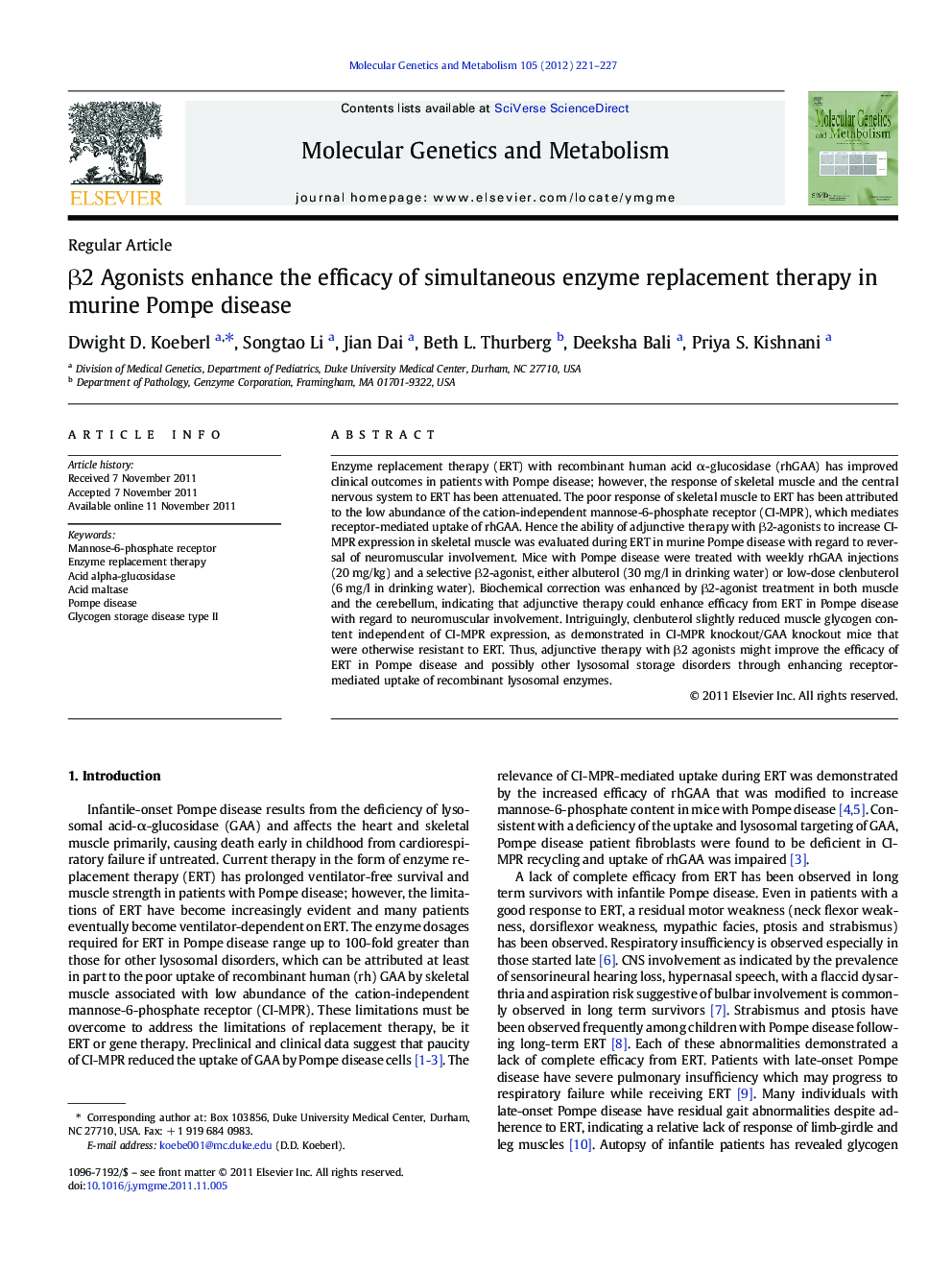| Article ID | Journal | Published Year | Pages | File Type |
|---|---|---|---|---|
| 1998621 | Molecular Genetics and Metabolism | 2012 | 7 Pages |
Enzyme replacement therapy (ERT) with recombinant human acid α-glucosidase (rhGAA) has improved clinical outcomes in patients with Pompe disease; however, the response of skeletal muscle and the central nervous system to ERT has been attenuated. The poor response of skeletal muscle to ERT has been attributed to the low abundance of the cation-independent mannose-6-phosphate receptor (CI-MPR), which mediates receptor-mediated uptake of rhGAA. Hence the ability of adjunctive therapy with β2-agonists to increase CI-MPR expression in skeletal muscle was evaluated during ERT in murine Pompe disease with regard to reversal of neuromuscular involvement. Mice with Pompe disease were treated with weekly rhGAA injections (20 mg/kg) and a selective β2-agonist, either albuterol (30 mg/l in drinking water) or low-dose clenbuterol (6 mg/l in drinking water). Biochemical correction was enhanced by β2-agonist treatment in both muscle and the cerebellum, indicating that adjunctive therapy could enhance efficacy from ERT in Pompe disease with regard to neuromuscular involvement. Intriguingly, clenbuterol slightly reduced muscle glycogen content independent of CI-MPR expression, as demonstrated in CI-MPR knockout/GAA knockout mice that were otherwise resistant to ERT. Thus, adjunctive therapy with β2 agonists might improve the efficacy of ERT in Pompe disease and possibly other lysosomal storage disorders through enhancing receptor-mediated uptake of recombinant lysosomal enzymes.
► Adjunctive therapy with β2-agonists enhanced enzyme replacement therapy in Pompe disease ► The efficacy of a lower dose for clenbuterol, and the efficacy of a second β2-agonist in albuterol ► The enhanced correction of the brain following β2-agonist treatment ► The CI-MPR dependence of β2-agonist enhancement
